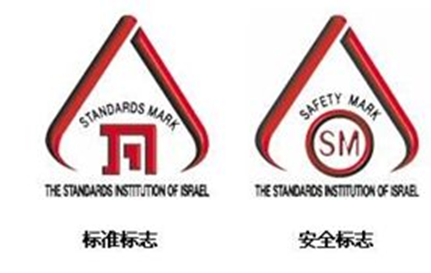Middle East Certification
Position: Home > International Certification > Middle East Certification
SII certification in Israel
SII certification in Israel
Certification introduction
The
short name of SII Israel Standards Association, full name: standards
lnstitution of lsrael, all electronic and electrical products exported to
Israel must obtain SII certification, because Israel is also a member of
ieeee-cb, so they recognize and can accept the CB test report issued by its
iecee-cb member.
<!--[if gte vml 1]>

The necessity of SII certification
The "compulsory" in Israel's compulsory certification needs to be
understood from many aspects. According to the law of the state of Israel, all
goods must be inspected by the SII agency when entering Israel to confirm that
the goods meet the requirements of Israel's national standards. Israel's
"industry, trade and labor office" calls this certification process
"ceremony of Conformity "means that the goods are inspected in
batches, i.e. every time the imported goods are inspected, the test certificate
issued in the last inspection can be used in the next inspection of goods, but
it can not directly replace this inspection of goods, it will only shorten the
stay time of goods in the customs, so as to save part of the customs stagnation
cost for customers (usually the SII inspection time is about 40 days) 。
Applicable product range
Household Electric Appliances
Switches and automatic transfer devices for cables, wires, instruments
Package and jointing plant
Lighting technology products
Adjust protection equipment
Low pressure control device
Small power transformer
Electric welding equipment
Personal computers and laptops
Chemical supply source
Small and medium engines
Measuring tools
Electronic instruments and equipment
recreational machines
Information technology equipment and office equipment
Cinematographic equipment and apparatus
Radio communication, radio broadcasting, television equipment
Communication and fax equipment
High voltage equipment
Electric heating equipment
Application process
1、application form
2、Sample test
3、Submit test report
4、Factory coaching before Factory review
5、On site review
6、Issue certificate
Application materials
If the manufacturer of electrical products wants to
obtain the approval of an electrical appliance with a mark produced by his
factory, he must submit a formal application at least including the following
contents:
A、Brief description of the organization of the manufacturer
(wood branch diagram of the organization);
B、Description of specifications and standards on which
products are manufactured;
C、Description of production equipment;
D、Description of inspection equipment;
<!--[if !supportLists]-->E、<!--[endif]-->If
necessary, measurement and calibration procedures and equipment description;
<!--[if !supportLists]-->F、<!--[endif]-->Description
of the quality control measures taken to supervise the consistent manufacturing
and their quality control specifications;
G、If not all the products are manufactured in the
applicant's factory, the manufacturing stage in the manufacturer's factory and
other manufacturers shall be described respectively;
H、List of test items that can be carried
out in the applicant's laboratory and list of equipment that can be used for
these tests.
Product range
According to the
standardization law, Israel classifies products into four levels according to
the degree of harm they may cause to public health and safety, and implements
different management:
Class I is the most
dangerous product to public health and safety, such as home appliances,
children's toys, pressure vessels, portable foam extinguishers.
The second category
is products with medium potential risk to public health and safety: sunglasses,
balls for various purposes, installation pipes, carpets, bottles, building
materials.
The third category is
products with low risk to public health and safety: including ceramic tiles,
ceramic sanitary wares, etc.
Category IV refers to
products only for industrial use and not directly facing consumers: such as
industrial electronic products.
Application process
1. Standards mark
certification: voluntary + compulsory certification. In principle, it is
voluntary certification, but compulsory certification requirements are
implemented for class I products.
1) Mandatory products
include: class I products, including storage solar water heater, plug and
socket, lamps, ballasts, lamp holders, domestic gas devices, portable electric
immersion heater, electric kettle, fire-fighting device, washing machine, refrigerator,
air conditioner, domestic heating / cooking / frying appliance, elevator,
electric blanket, primary battery pack, etc.
2) Certification
procedure: SII product test + SII first factory inspection + SII annual factory
inspection = SII certificate
3) Logo: as shown
below:
<!--[if gte vml 1]>
<!--[if !supportLists]-->2. <!--[endif]-->Safety mark
certification: voluntary certification. Mainly for class I products. The main
function of applying for the certification is to reduce the procedures of
customs inspection and enter the market in a short time. Unlike standard mark
certification, safety mark certification does not require factory inspection.
1) Mandatory products
include: class I products. Please confirm with PNT if it is within the
mandatory scope.
2) Certification
procedure: SII product test = SII certificate
3)Logo: as shown
below:
<!--[if gte vml 1]>
3. Type approval of
SII type approval: Currently, it is generally adopted. After the application is
approved, the mark will not be granted, but the products will be allowed to be
imported and sold after they pass the inspection before shipment by the customs.
No factory inspection requirements.
4. SII shipment
inspection: when the goods arrive at the port, the Israeli customs will test
and inspect the products batch by batch. This way is risky.
Certification mark
<!--[if gte vml 1]>
Other information
Technical
information: voltage frequency AC230V, 50Hz, plug Si 32
Compulsory or not: compulsory + voluntary
Certificate validity: 1-4 years, based on product
Factory inspection
requirements: only SII standard certification requires factory inspection
Requirements of the holder: local agent is required to hold the certificate


